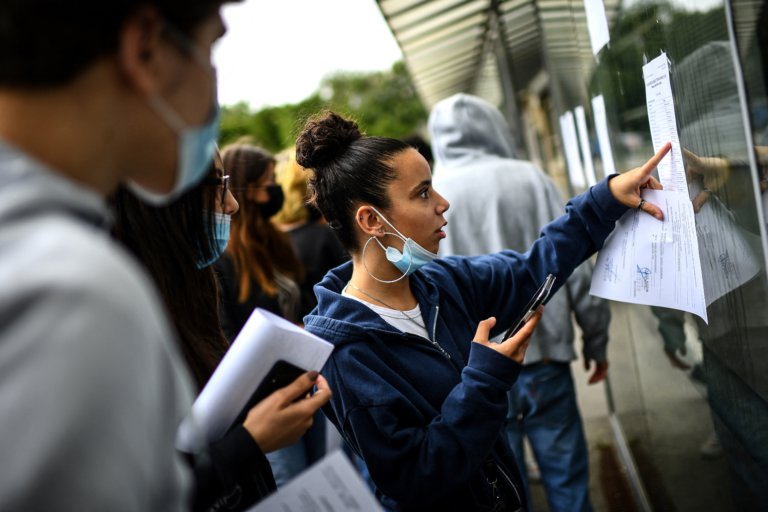
Results day. If you’re an A Level student, you’re probably feeling both fear and excitement in spades. After all, Results Day will define, in some way or another, the trajectory of the next year of your life.
When is Results Day 2022?
In the UK, Results Day falls on Aug. 18, 2022.
International students might see a different date, depending on your exam board, but can expect to see their results released on or around the same date. Cambridge International AS and A-Level results, for example, will be released on Aug. 11, 2022.
What if my results are released earlier than in the UK?
This is possible. As an international student, you’d naturally be taking exams with a different board compared to those in the UK. This means that the structure and content of your papers might be different from what students in the UK would sit for.
You may have already started picking this out as you complete your A Levels and take to social media to discuss your answers. For example, not every IGCSE student may have faced the same “impossible” math question that stumped GCSE students and teachers in the UK.
Instead, you have an advantage: you’ll have already received your results while UK students are patiently awaiting theirs. Most of the time, UCAS won’t update your acceptance status to the universities you’ve applied to until everyone else’s results come out.
This is both a good and bad thing. On the bright side, you’ll have a better idea of your future direction — if you’ve met your first choice offer or not, and whether you’d need to think about other options.
The down side? You’ll need to wait for everyone else’s results to come out before you can get a confirmation for any of your plans. This means that if you haven’t met your offer or are eligible for Clearing, you’ll need to go through it at the same time as everyone else.

International students might see a different date, depending on your exam board, but can expect to see their results released on or around the same date. Source: Andy Buchanan/AFP
What you should do before Results Day
Results Day can be extremely overwhelming. You’re likely to see your peers posting their results up if they’ve done particularly well, or hear crickets from those who haven’t.
Either way, you’re likely to be bombarded by not only your own results, but those of everyone around you, so you should do your best to mentally prepare beforehand. With this, here’s some ways you can ready yourself for Results Day 2022.
1. Know what to expect
Whatever happens on Results Day, you’ll know that you’re likely to face one of three options. These are:
- You’re accepted into your university of choice
- You’re accepted into your insurance university
- You don’t meet your grades and have to go through Clearing
Of course, the first option is the best case scenario, and if you’ve prepared for your exams well enough, it’s likely to happen. However, you should brace yourself for the possibility of either one of the other two options, as you never know how your results may turn out.
2. Gather all the info you need
There are a few things less stressful than realising that it’s Results Day and not being able to access your grades. To avoid this hassle, make sure you gather all the information you need to do this — from reference numbers to your UCAS Track login details.
3. Note down the phone numbers of your school advisors
The worst thing that could happen on Results Day is getting rejected by your dream uni. What most students don’t think about, however, is what happens after that.
If you happen to find yourself in this boat, you’ll most likely be panicking or wondering what to do next. After all, some universities might still show you some leniency if you ask them to reconsider. To navigate through this, though, you’d be better off contacting someone with experience to help you.
Most of the time, this will take the form of your school A Level or international advisor. Before you go off for your summer break, be sure to research who you’d be able to contact in advance and note down their phone numbers. This will save you a lot of stress should this happen to you.
Alternatively, you could scour potential education agents. These are individuals who are dedicated to bridging the gap between universities and students during Results Day, including addressing students’ concerns about any rejections. Be sure to look for agents who could help you online, and note down their phone numbers and email addresses.

Try to find solace in the fact that you’ve done the best you can, and if you don’t get the results you want, there are still many options open to you. Source: Guillaume Souvant/AFP
4. Familiarise yourself with the process of Clearing
Clearing is a dreaded word for most A Level students, and for an understandable reason. It’s what you’d have to go through if you haven’t received the grades you want to meet your conditional offer and are still looking for a university who might take you.
It’s not something most students want to think about, but you should know the basics to save you any potential headaches later on. We’ve summarised some must-knows here:
- You don’t need to register for Clearing in advance. If you’ve applied through UCAS, you’ll automatically enter the Clearing pool if you’re eligible.
- You need a Clearing number to apply to universities through this method. This will be assigned to you by UCAS.
- Clearing isn’t limited to “second-rate” universities. Many Russell Group universities, including the University of Bristol and the University of Warwick, have listed programmes via Clearing.
- Clearing is open to you if you’ve done better than expected and want to apply to a different uni.
Clearing opens from July 5, 2022, so you can have a look at the programmes and universities on offer in advance. This can be a huge help on Results Day, as you’ll have a better picture of your prospects should your plans for university change.
5. Remember that you’ve done everything you can
When all is said and done, it’s important to remember that your exams have passed and there’s nothing you can do about it now. Try to find solace in the fact that you’ve done the best you can, and if you don’t get the results you want, there are still many options open to you.










